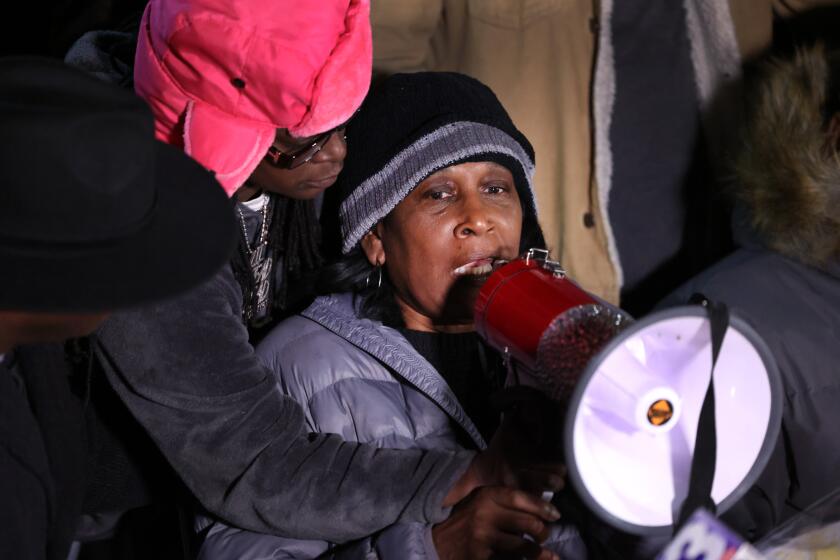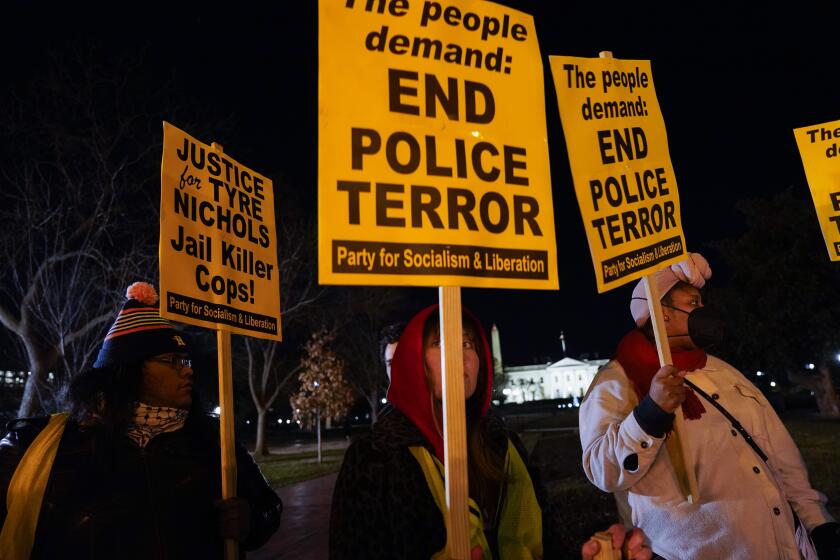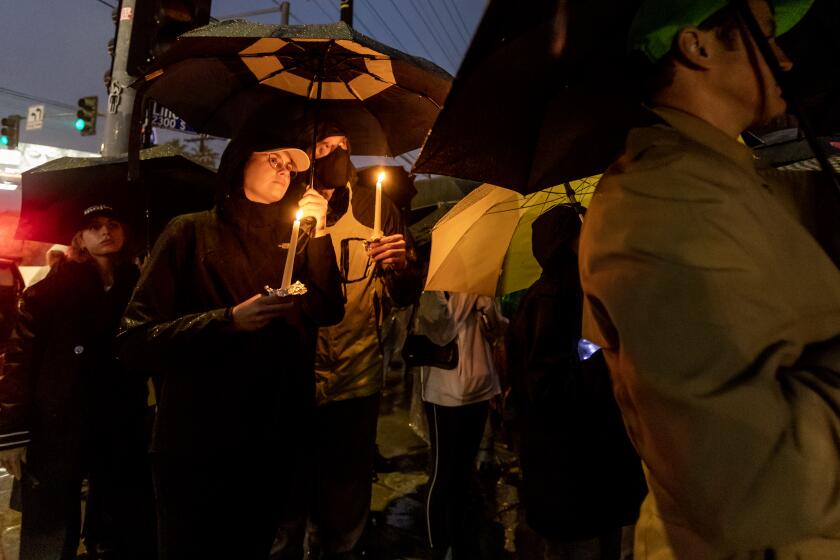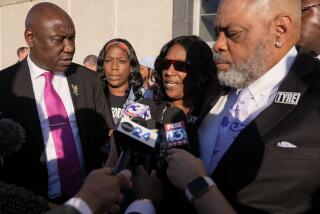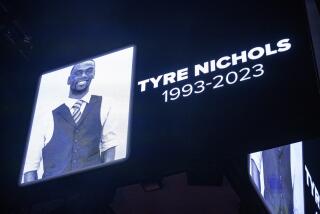Column: In comparing Tyre Nichols to Rodney King, we’re missing this point about policing
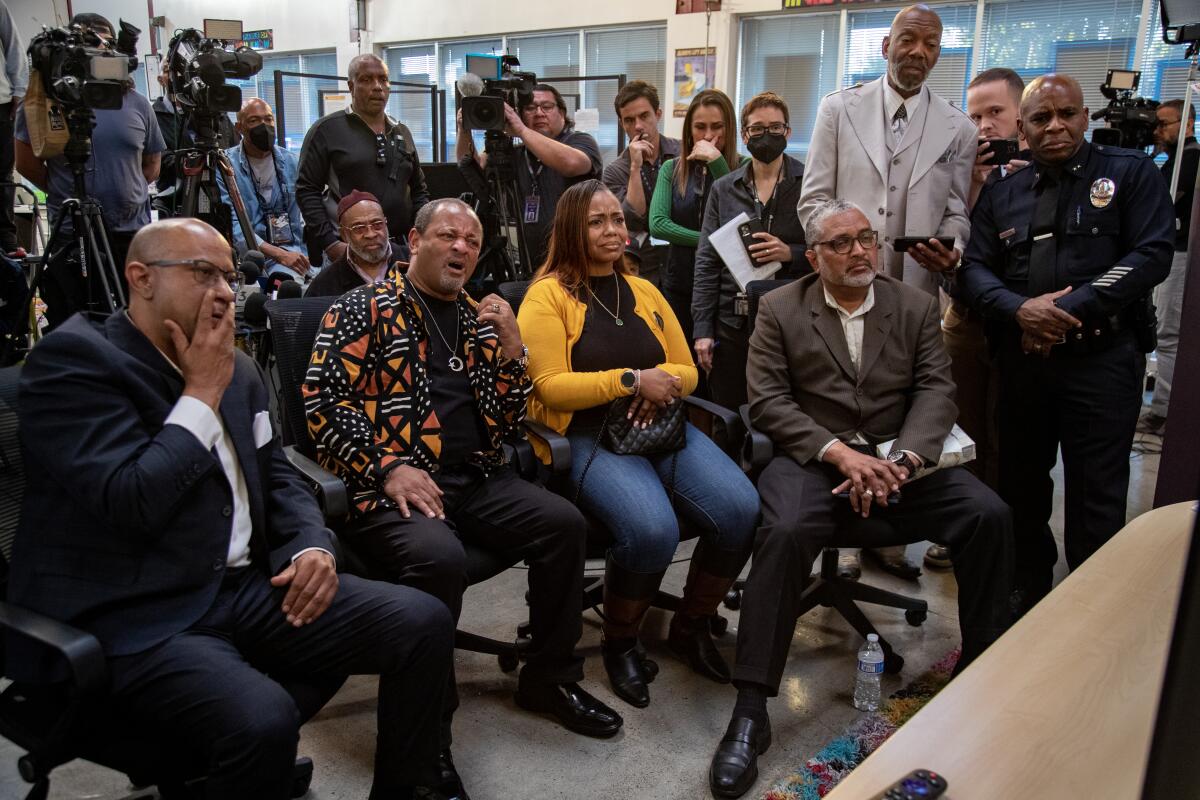
Lora Dene King had no intention of watching even five minutes of Memphis police beating Tyre Nichols.
“Honestly, I have to baby-sit my mental state,” she told me. “It’s a lot for me to process.”
Like many of us, she had heard the warnings that the roughly hour’s worth of video released on Friday would be far more violent, far more brutal and far more savage than the grainy footage of Los Angeles police officers beating her father, Rodney King, back in 1991.
Memphis Police Chief Cerelyn Davis surmised it was “about the same, if not worse.”
And Ed Obayashi, a Northern California sheriff’s deputy and use-of-force expert, concluded it was “far worse,” telling The Times: “In all my years of use-of-force cases, I have never [seen] one where they are holding him up to beat him.”
The city of Memphis has released the video showing the actions of officers while arresting Tyre Nichols after a traffic stop on Jan. 7.
But on Friday, King headed to Leimert Park anyway, and forced herself to watch video of five cops dragging Nichols from his car and then punching, kicking, tackling, pepper-spraying and attempting to tase the defenseless 29-year-old Black man. And then laughing about it.
Her mouth periodically falling open in shock, King reflected on what has and hasn’t changed in policing over the decades — including the delusions that far too many Americans apparently share about how change actually occurs.
Hint: It’s not hiring more Black cops.
“The only difference between 30-plus years with my father and now is we now have hashtags, clear video and phones,” she told me.
King was just 8 years old when her father was pulled over and beaten by four white Los Angeles police officers a few feet from his car in the San Fernando Valley.
As they took turns hitting him with their batons, illuminated by the lights of a police car, more than a dozen other officers from the LAPD and other agencies gathered around in a loose circle to watch. Later, not one officer at the scene made a formal report of the misconduct. They even joked about it.
Back then, there were no body-worn cameras or smartphones with high-definition cameras and instantaneous access to social media. A stranger with an old-school camcorder brought the gruesome scene from the darkness into the light.
So cruel and so callous, much of non-Black America looked at the footage and saw racism, pure and simple, nothing more, nothing less. And many of those people thought — and many mayors and city councils agreed — that if we just diversified the ranks of police departments, it would solve the problem of police brutality in communities of color.
But it was never that pure or that simple.
As numerous researchers told my Times colleague Jaweed Kaleem, diversity isn’t a panacea.
“Studies indicate that Black officers are just as brutal and at times even more brutal against Black bodies as their white counterparts,” said Duane Loynes Sr., an assistant professor at Rhodes College in Memphis, Tenn., who studies the relationship between Black communities and police. “If a system is problematic, it doesn’t matter who you plug into it. You will get the same result.”
Of course, none of this is exactly news to Black people, much less to Lora King.
With five Black officers charged with murder in the beating death of Black motorist Tyre Nichols, what do we know about the role race plays in policing?
“I know my dad’s situation,” she said of King, who died in 2012. “And [some of] the bystanders were African American cops who did nothing.”
This is why, when activists with Black Lives Matter take to the streets to demand justice for an act of police brutality, the race of the officers involved is almost never mentioned. It’s that irrelevant.
And yet, almost 32 years after the Rodney King beating, many still seem confused and shocked that Nichols was beaten by five Black cops in a city where more than half the police force is Black and most residents are too.
Tadarrius Bean, Demetrius Haley, Emmitt Martin III, Desmond Mills Jr. and Justin Smith were all members of the Memphis Police Department’s aggressive violent-crime unit, “SCORPION.” The unit has since been disbanded. And the officers have been fired, arrested, charged and released on bail.
Their deadly encounter with Nichols started as so many do — with a traffic stop.
“You gonna get your ass blown the f— out,” one officer yells at Nichols, who is seated in his car. Then, with guns pointed at him, an officer drags him from the driver’s seat.
“I didn’t do anything,” Nichols says. “All right, I’m on the ground.”
A few minutes later, an officer tells Nichols: “Watch out, I’m gonna baton the f— out of you!” Then another officer punches him in the face. Others hold him up as more blows are delivered.
“All right, all right,” Nichols says, moaning and trying desperately to comply with their orders.
Throughout the beating, he screams for his mother, who was at home only a short distance away. Near the end of the recording, the officers can be heard laughing and joking as Nichols, propped up against a car, slumps over.
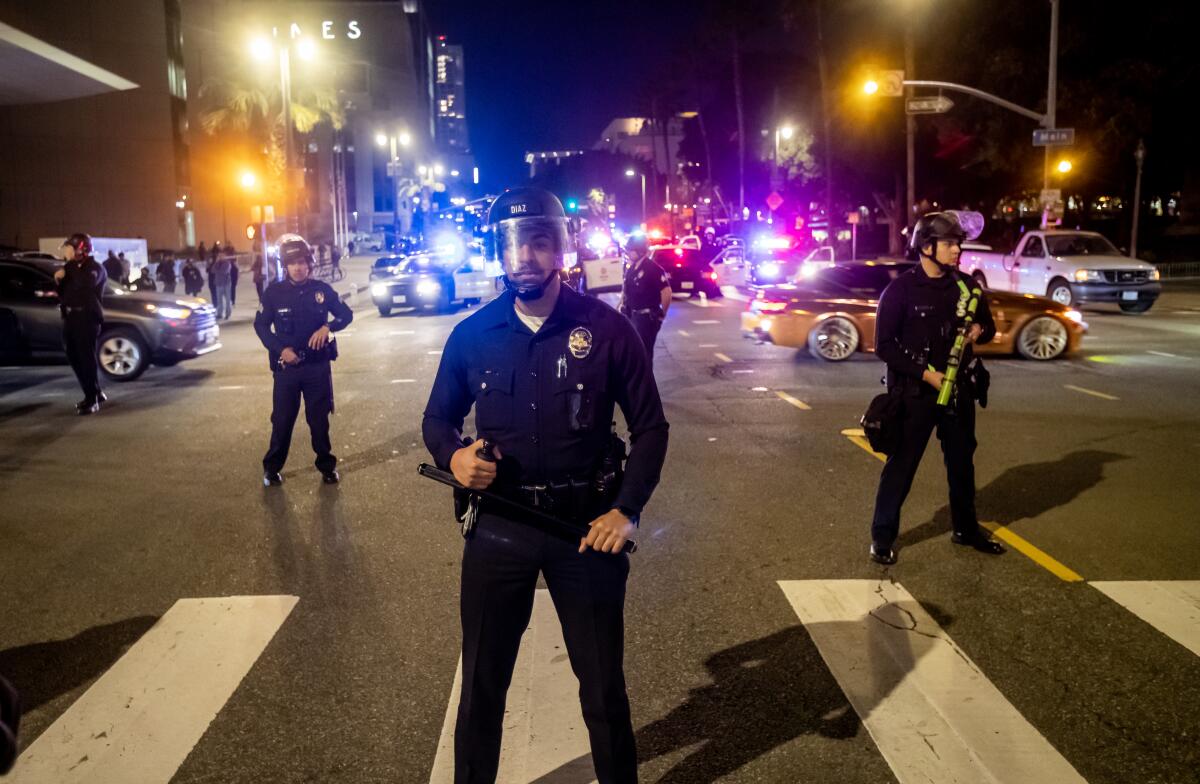
“Hey, sit up, bro,” one officer tells Nichols, who, by this point, was lying on the ground in pain. “Sit up, man.”
I wouldn’t advise anyone to watch the footage, even the snippets, but if you do, you’ll see what looks more like someone getting jumped in an alley outside of a dive bar than police officers trying to arrest someone.
That all five were comfortable carrying out such senseless savagery while not only wearing body cameras but doing it under a pole-mounted police surveillance camera, is indicative of a toxic culture of policing. A “groupthink,” as Chief Davis called it, that is bigger than “bad apples.”
Sure, it’s extremely disappointing that not one of them looked at Nichols and saw a reflection of their own Blackness — and a recognition of the brutality that so many Black people have endured over the decades by people with a badge and a gun.
“They have brought shame to their own families,” Nichols’ mother, RowVaughn Wells, told CNN on Friday. “They brought shame to the Black community.”
They also betrayed the civil rights activists who’ve been fighting to protect Black lives for more decades than I’ve been alive.
The Rev. Al Sharpton, who also has drawn comparisons between Nichols and King, acknowledged “that these officers are Black makes it more egregious to those of us in the civil rights movement.” But “these officers should not be allowed to hide their deeds behind their Blackness. We are against all police brutality — not just white police brutality.”
And police brutality, at its core, is about systemic racism, not the racism of individual officers. It’s about enforcing a system of power that is built on white supremacy and carried out by overpolicing low-income communities of color, like an occupying force.
Keenan Anderson, cousin of a BLM founder, is among three men of color who have died this year after encounters with LAPD officers. A vigil was packed.
Anyone, even Black cops, can be a tool of that system because anyone can be a tool of white supremacy.
So, no, diversifying police departments won’t help. What will help are new laws that fundamentally change how police departments operate, whether it’s requiring more active monitoring of officers’ mental health or somehow changing their role in carrying out traffic stops. We have to be more intentional about explicitly forbidding and punishing behavior that needs to stop.
“Whatever we’re doing, it’s not working,” King told me. “It’s not working because we’re still in the same place going into infinity sign. So the whole everything needs to be reconstructed.”
Nichols, who died days after his beating, swollen and bloodied on a ventilator in a Memphis hospital, had lived in Sacramento until just a few years ago. He leaves behind a 4-year-old son.
Like the daughter of Rodney King, his son will one day have to make sense of a system of policing and of power that a majority of Americans refuse to meaningfully change because they benefit from it — even as it continues to destroy Black lives, one way or another.
“It’s sad we even have to compare this. It’s sad that it’s even happening,” King said, trying to come up with the words. “It doesn’t make sense. I can never make sense of it. It’s sickening.”
More to Read
Sign up for Essential California
The most important California stories and recommendations in your inbox every morning.
You may occasionally receive promotional content from the Los Angeles Times.
